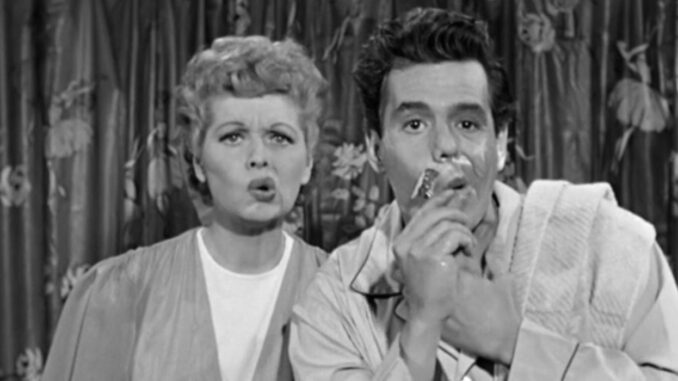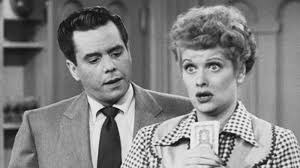
Introduction: How ‘I Love Lucy’ Revolutionized Television Forever
When we talk about TV history, few shows hold the same iconic status as I Love Lucy. From its groundbreaking production techniques to its relatable comedy, this series reshaped the television landscape forever. It wasn’t just another sitcom; it was a trailblazer that set standards still followed by TV creators today.
So, what made I Love Lucy such a game-changer? Let’s dive into the lasting legacy of this beloved series.
The First Multi-Camera Sitcom: A Game-Changer
Lucille Ball and Desi Arnaz revolutionized how sitcoms were filmed. Before I Love Lucy, TV shows often relied on live broadcasts or single-camera setups with limited angles. But I Love Lucy introduced the multi-camera format, which allowed for dynamic storytelling and seamless editing.
Why This Innovation Mattered
- Better Audience Experience: The multi-camera setup gave viewers a richer perspective of the action.
- Live Studio Audience: This setup made the laughter feel authentic, creating a connection between the audience at home and the show.
- Lasting Influence: The technique is still used in shows like Friends and The Big Bang Theory.
Lucille Ball: A Trailblazer for Women in Television
Lucille Ball wasn’t just the star of I Love Lucy—she was a pioneer for women in Hollywood. At a time when women were largely relegated to supporting roles, she proved they could headline and even produce a successful TV series.
Breaking Stereotypes
- Lucille Ball portrayed Lucy Ricardo as both hilariously flawed and incredibly relatable.
- She challenged the traditional image of women in TV, paving the way for future female comedians like Carol Burnett and Tina Fey.
A Real-Life Couple That Broke Barriers
The on-screen chemistry between Lucy and Ricky Ricardo was unmatched, but what made it revolutionary was the real-life relationship behind it.
Desi Arnaz and Representation
Desi Arnaz, a Cuban-American, brought diversity to primetime television in the 1950s—a rarity for the era. Their marriage was an unapologetic display of an interracial couple, breaking cultural taboos and creating a blueprint for representation in Hollywood.

Reruns: An Accidental Masterstroke
Did you know that reruns as we know them started with I Love Lucy? When Lucille Ball became pregnant, the show’s creators decided to rebroadcast earlier episodes to fill airtime.
Why This Changed TV Forever
- The Birth of Syndication: Networks realized they could make money by replaying popular shows.
- Global Reach: Reruns allowed I Love Lucy to reach audiences worldwide, cementing its legacy as a cultural phenomenon.
First Show to Use Film: A Move for Quality
Desi Arnaz insisted on filming the series on high-quality 35mm film instead of broadcasting live. While this was a more expensive choice, it ensured the show’s timeless quality.
Long-Term Benefits
- Allowed for clearer, crisper visuals, even decades later.
- Preserved the show for future generations to enjoy.
The Power of Physical Comedy
Who could forget Lucy’s hilarious grape-stomping scene or her frantic chocolate factory escapades? Physical comedy became a hallmark of I Love Lucy, setting it apart from other sitcoms.
Why It Worked
Lucille Ball’s expressive face and impeccable timing brought slapstick humor to life. She didn’t just act funny; she became funny, creating timeless comedy that still makes audiences laugh.
Real-Life Pregnancy on Screen: Breaking Taboos
In 1952, Lucille Ball’s real-life pregnancy was written into the show’s storyline—a groundbreaking move for its time.
Cultural Significance
- Normalizing Motherhood: The show treated pregnancy as a normal part of life, breaking the taboo surrounding it on TV.
- Record-Breaking Viewership: The episode featuring the birth of Little Ricky attracted over 44 million viewers, surpassing even President Eisenhower’s inauguration.
The Birth of the Sitcom Formula
I Love Lucy introduced a formula that sitcoms still follow today: relatable characters, clever humor, and situations that escalate hilariously.
Lasting Legacy
From Seinfeld to Modern Family, the DNA of I Love Lucy can be seen in nearly every successful sitcom.
Merchandising Mania
Lucille Ball and Desi Arnaz capitalized on the show’s popularity by pioneering TV merchandising. From Lucy dolls to Ricky’s conga drums, they turned I Love Lucy into a full-blown brand.
Paving the Way
This move set the stage for modern TV franchises like Star Wars and The Simpsons, which generate billions through merchandising.
Behind-the-Scenes Genius: Desilu Productions
Desilu Productions, founded by Lucille Ball and Desi Arnaz, wasn’t just behind I Love Lucy—it was a powerhouse that shaped TV history.
Key Contributions
- Produced classics like Star Trek and The Andy Griffith Show.
- Empowered creators to take risks and innovate, changing the TV industry forever.
A Cultural Time Capsule
While I Love Lucy is a product of its time, it remains relevant today. Its humor, heart, and groundbreaking techniques continue to resonate with audiences, proving that great storytelling is timeless.
Conclusion: A Legacy That Lives On
I Love Lucy didn’t just entertain millions—it changed television forever. From its technical innovations to its cultural impact, the show’s legacy is a testament to the power of creativity and determination. Lucille Ball and Desi Arnaz proved that great TV could be funny, heartfelt, and groundbreaking all at once.
So next time you laugh at a sitcom, remember: you’ve got I Love Lucy to thank.
FAQs
1. Why was I Love Lucy so groundbreaking?
It introduced the multi-camera format, showcased a real-life pregnancy, and broke cultural taboos with its diverse cast.
2. Who created I Love Lucy?
Lucille Ball and Desi Arnaz, who also starred as the iconic couple Lucy and Ricky Ricardo.
3. How did I Love Lucy influence reruns?
The show pioneered the concept of reruns during Lucille Ball’s pregnancy, paving the way for modern syndication.
4. What made Lucille Ball a trailblazer?
She was one of the first women to lead and produce a hit TV series, breaking stereotypes for women in Hollywood.
5. Is I Love Lucy still relevant today?
Absolutely! Its innovative techniques and timeless humor continue to influence TV creators and entertain audiences worldwide.